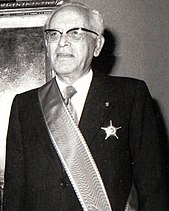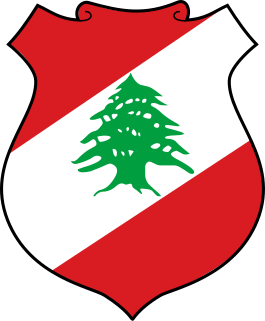Lebanon is a semi-presidential parliamentary democratic republic within the overall framework of confessionalism, a form of consociationalism in which the highest offices are proportionately reserved for representatives from certain religious communities. The constitution grants the people the right to change their government. However, from the mid-1970s until the parliamentary elections in 1992, civil war precluded the exercise of political rights. According to the constitution, direct elections must be held for the parliament every 4 years but after the parliamentary election in 2009 another election was not held until 2018. The Parliament, in turn, elects a President every 6 years to a single term. The President is not eligible for re-election. The last presidential election was in 2016. The president and parliament choose the Prime Minister. Political parties may be formed; most are based on sectarian interests. 2008 saw a new twist to Lebanese politics when the Doha Agreement set a new trend where the opposition is allowed a veto power in the Lebanese Council of Ministers and confirmed religious Confessionalism in the distribution of political power. The Economist Intelligence Unit classified Lebanon as a "hybrid regime" in 2016.

The President of the Czech Republic is the elected formal head of state of the Czech Republic and the commander-in-chief of the Military of the Czech Republic. Unlike counterparts in other Central European countries such as Austria and Hungary, who are generally considered figureheads, the Czech president has a considerable role in political affairs. Because many powers can only be exercised with the signatures of both the President and the Prime Minister of the Czech Republic, responsibility over some political issues is effectively shared between the two offices.
In parliamentary and some semi-presidential systems, a dissolution of parliament is the dispersal of a legislature at the call of an election.
The Taif Agreement was an agreement reached to provide "the basis for the ending of the civil war and the return to political normalcy in Lebanon". Negotiated in Ta'if, Saudi Arabia, it was designed to end the decades-long Lebanese Civil War, reassert Lebanese authority in Southern Lebanon, though the agreement set a time frame for Syrian withdrawal and stipulated that the Syrians withdraw in two years. It was signed on 22 October 1989 and ratified by the Lebanese parliament on 5 November 1989.

René Moawad as 13th President of Lebanon for 17 days in 1989, from the 5 to 22 November, when he was assassinated by unknown assailants.

Selim Ahmed Hoss is a veteran Lebanese politician. He was a Prime Minister of Lebanon and a longtime Member of Parliament representing his hometown, Beirut. He is known as a technocrat.

Nasrallah Boutros Sfeir is the patriarch emeritus of Lebanon's largest Christian body, the Maronite Church, an Eastern Catholic Church in communion with the Holy See. He is also a Cardinal. He was elected Patriarch of Antioch for the Maronites on 27 April 1986, and his resignation was accepted on 26 February 2011. He is the third Maronite Cardinal and he was the 76th Patriarch of the Maronite Church with the official title of "His Beatitude and Eminence the seventy-sixth Patriarch of Antioch and the Whole Levant".
The Qornet Shehwan Gathering is a Lebanese political organization, comprising politicians, intellectuals, and businesspeople, mostly Christian and ranging in ideology from the centre-right to the center-left. The organization is not a political party in the classical sense: its members belong to, and in some cases lead, a variety of political parties. It is more of a loose coalition, although whether it intends to organize electorally is unclear. The coalition adheres to seven principles and pursues five objectives.

The Free Patriotic Movement (FPM), also known as the Aounist party, is a Lebanese political party, led by Gebran Bassil. It is the largest party in the Lebanese parliament. Its parliamentary coalition, the Strong Lebanon Bloc has 29 out of the 128 seats in parliament.

The President of the Lebanese Republic is the head of state of Lebanon. The president is elected by the parliament for a term of six years, which is not immediately renewable. By convention, the president is always a Maronite Christian.
An indirect presidential election was held in the Parliament of Lebanon on 25 May 2008, after the term of incumbent President Émile Lahoud expired on 24 November 2007 at midnight. General Michel Sleiman, the Commander of the Lebanese Armed Forces, was elected as the consensus candidate after months of delays in holding the election due to an ongoing political dispute.

A series of rounds in the Lebanese presidential election were held from 23 April 2014 until 31 October 2016. No candidate reached a two-thirds majority vote in the first round, and subsequent rounds failed to gain a quorum. Finally in the forty-sixth round held on 31 October 2016, Michel Aoun, a Member of Parliament and formerly a disputed Prime Minister and Acting President in a rival government near the end of the Lebanese Civil War, was elected with 83 votes in Parliament. He took office the same day as the 12th President of Lebanon since independence in 1943.

Michel Moawad is a Member of the Lebanese Parliament. He is a member of "Strong Lebanon" parliamentary bloc, elected in May 2018 on behalf of Zgharta District in the North 3 Electoral sector. Founder and president of the Independence Movement, member of the March 14 Coalition leadership, active participant of the 2005 Cedar Revolution as well as key precursor movements, and son of former Lebanese President René Moawad, assassinated on the November 22nd 1989. Founding member and executive director of the René Moawad Foundation, and member of the Maronite Foundation in the World. Civic involvement further includes supporting employment and entrepreneurship in via initiatives such as FORAS: Fostering Entrepreneurship and Employment in North Lebanon and BIAT , as well as several social initiatives to protect and ameliorate the conditions of underprivileged populations in Lebanon.
Henri Helou born 1953 in Beirut, Lebanon, is a Lebanese politician and a member of the Lebanese Parliament and a member of the Democratic Meeting.
An indirect presidential election was held in the Parliament of Lebanon on 24 November 1998, resulting in General Emile Lahoud being elected President of the Lebanese Republic.

The Council of Ministers of Lebanon is the executive body of the Republic of Lebanon. Its president is the Prime Minister of Lebanon, and it appointed by the President of Lebanon with confirmation of the Parliament of Lebanon. It is generally equally composed of Muslims and Christians. The Council of Ministers is considered to be the "government" of Lebanon by the Constitution.

An indirect presidential election was held in the Parliament of Lebanon on 24 November 1989, resulting in Deputy Elias Hrawi being elected President of the Lebanese Republic.

An indirect presidential election was held in the Parliament of Lebanon on 5 November 1970, resulting in Deputy Suleiman Frangieh being elected President of the Lebanese Republic.














